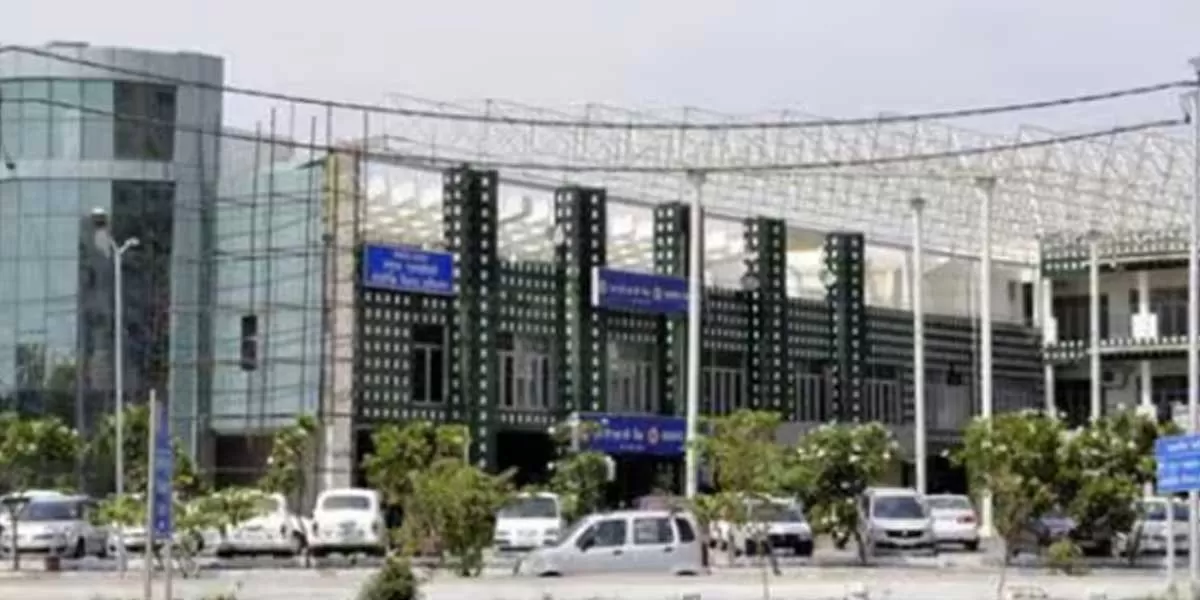The Yamuna Expressway Industrial Development Authority (YEIDA), which is responsible for developing the area around the upcoming Noida International Airport, has faced criticism from the Comptroller and Auditor General (CAG) for major lapses in policy and procedures during the 16-year period from 2005 to 2021. These issues have contributed to the country’s biggest stalled project problems, particularly when considering the combined challenges faced by YEIDA, Noida, and Greater Noida, despite various government and court interventions.
One of the key irregularities highlighted by the CAG was YEIDA's allotment of residential township and group housing plots, which led to financial losses of Rs 42.26 billion. The CAG found that the eligibility criteria for these schemes were insufficient, allowing applicants with minimal financial capacity to bid for high-value plots, resulting in a mismatch between the scale of projects and the bidders' capabilities. In some instances, developers secured plots valued up to 18 times their declared net worth. These issues mirrored those found in previous audits of the Noida Authority.
YEIDA had allotted 14 residential township plots, ranging from 2.5 lakh square meters to 8 lakh square meters, under three schemes for the construction of plotted and flatted residential dwellings between 2010 and 2011. After subdividing one plot into two, sub-leases were granted by four allottees to 11 sub-lessees, and by one sub-lessee to three others, resulting in a total of 29 allottees. Of these, 16 plots were either cancelled or surrendered, and 13 experienced delays, leading to overdue amounts of Rs 41.85 billion as of September 30, 2022.
Additionally, between February 2011 and September 2014, YEIDA allotted five group housing plots under three schemes, with sizes ranging from 82,346 square meters to 1.37 lakh square meters. Three of these plots were cancelled, and one plot was partially surrendered by the allottee. The projects on the remaining plots, including the partially surrendered one, faced delays.
The CAG pointed out that YEIDA’s eligibility conditions were inconsistent with the size and value of the plots, applying the same technical and financial criteria to both smaller and larger plots. This allowed applicants with insufficient capabilities to secure high-value projects. For example, Greenbay Infrastructure obtained a 4 lakh square meter plot in Sector 22D worth Rs 1.92 billion, despite showing minimal completed construction, resulting in long delays and dues of Rs 7.03 billion by September 30, 2022. Similarly, Orris Developers secured an 8 lakh square meter plot in Sector 22D valued at Rs 3.88 billion, despite not meeting technical eligibility criteria, and faced delays with dues amounting to Rs 9.89 billion.
In several cases, minor consortium members were allowed to meet 100 per cent of the eligibility criteria, even when the lead members did not meet the requirements. One example was Sunworld City, which was allotted a 4 lakh square meter plot in Sector 22D worth Rs 1.95 billion, despite none of the lead members meeting the financial or technical requirements. This project was delayed by more than five years, with dues exceeding Rs 7.03 billion.
The CAG also criticized YEIDA for permitting sub-leases without evaluating the capabilities of sub-lessees to execute projects or pay dues, which resulted in financial losses. For instance, Orris Developers sub-leased land to ATS Realty in Sector 22D at a significantly higher price than the original allotment, resulting in undue profit of at least Rs 1.03 billion. YEIDA did not levy transfer charges in such cases, leading to a direct revenue loss of Rs 280 million.
The auditor highlighted YEIDA’s leniency toward defaulting allottees, pointing out that penalties for delayed lease deed execution were insufficient to cover lease rent losses. YEIDA also failed to cancel allotments despite significant delays in submitting layout plans, completing development work, and adhering to floor area ratio. For example, Supertech Township Project secured a 4 lakh square meter plot in Sector 22D worth Rs 1.93 billion by submitting "tampered documents," resulting in prolonged delays and unpaid dues.
YEIDA was also found to have granted unwarranted benefits to allottees, including allowing them to retain excess land, not forfeiting prescribed amounts on cancelled allotments, and granting "zero periods" without justification. Furthermore, the scheme brochures lacked safeguards, such as provisions for recovering post-allotment cost increases, opening escrow accounts, or obtaining performance bank guarantees, leaving YEIDA financially vulnerable.





















